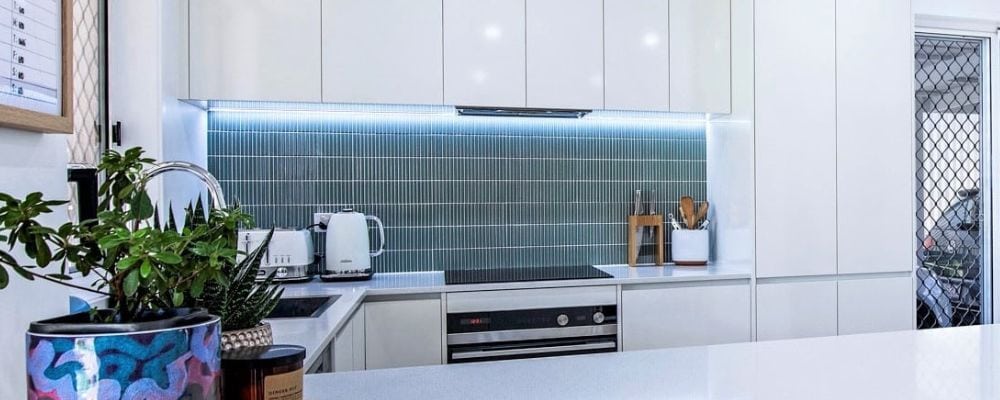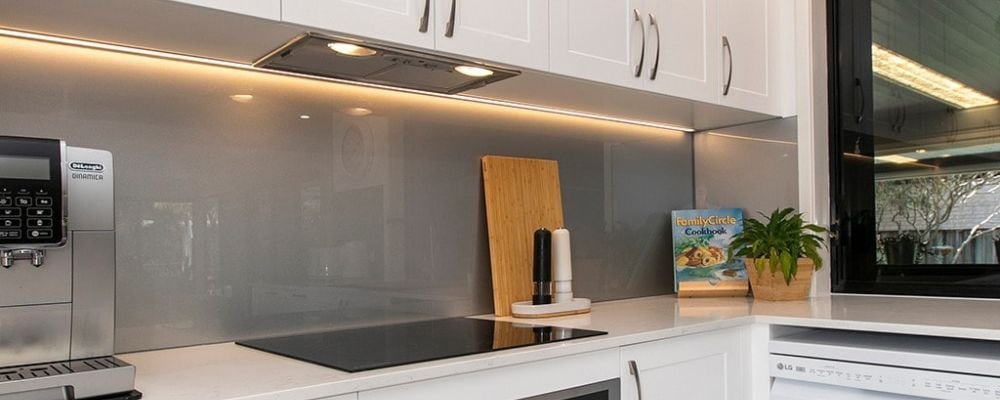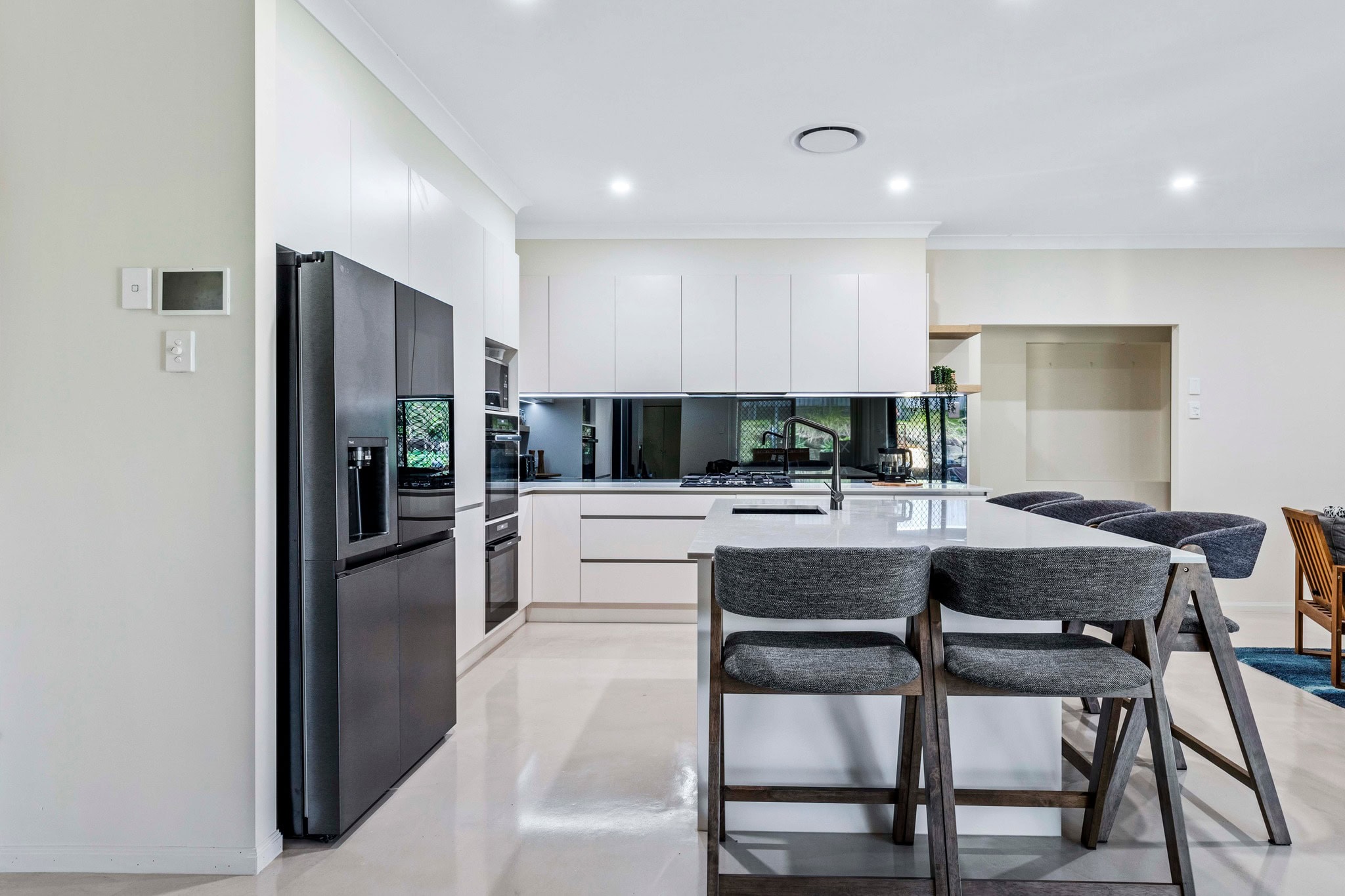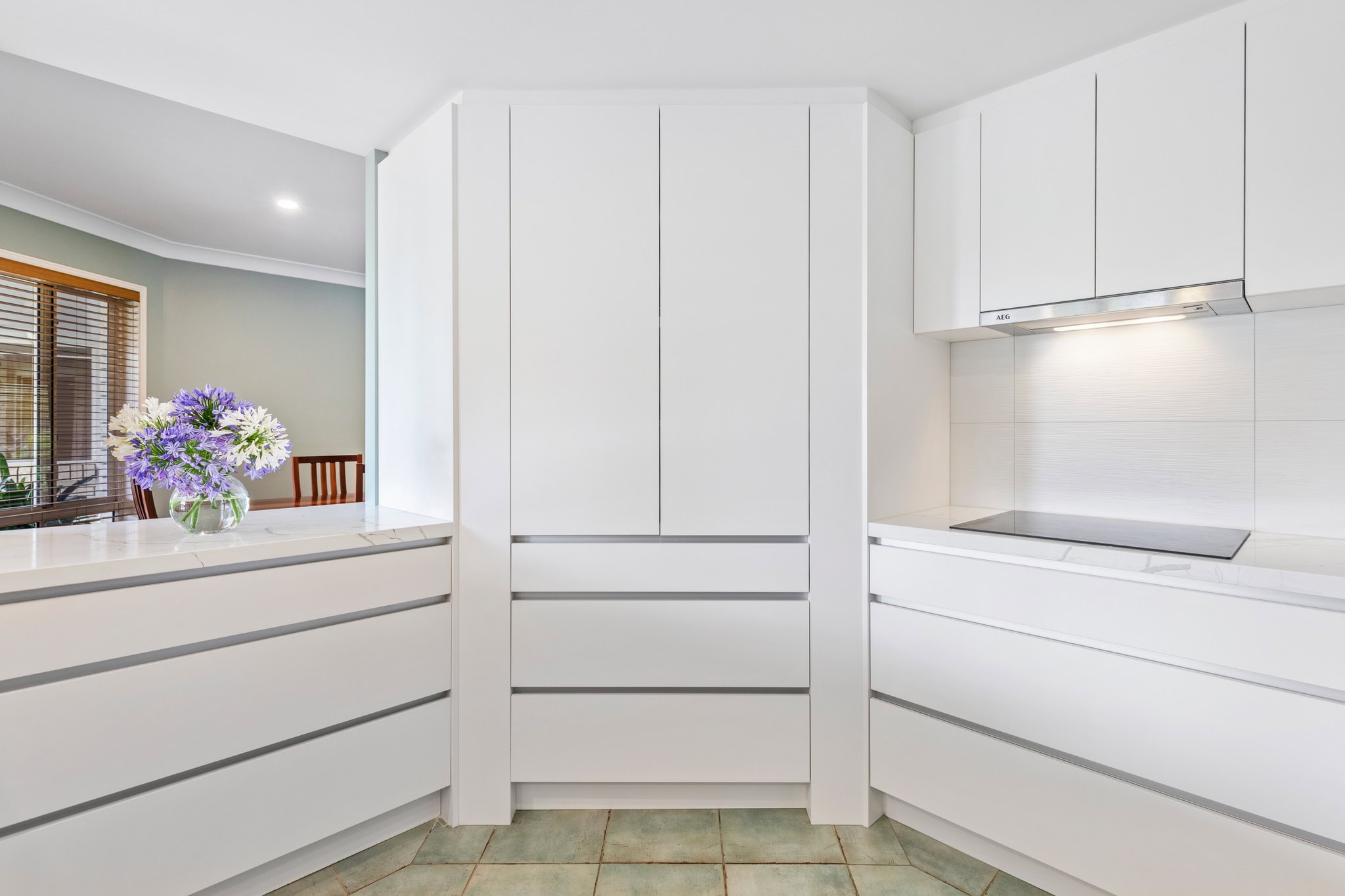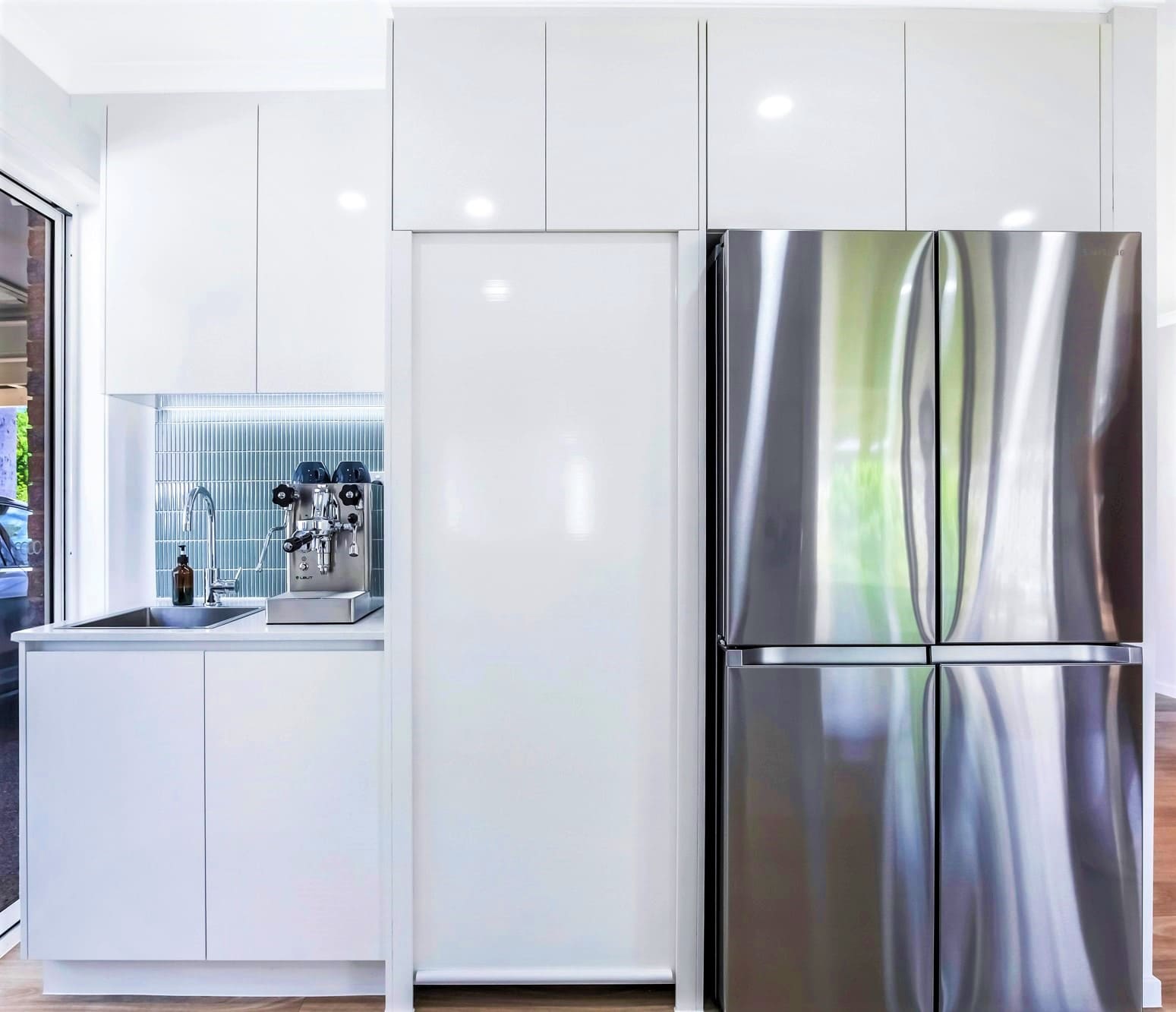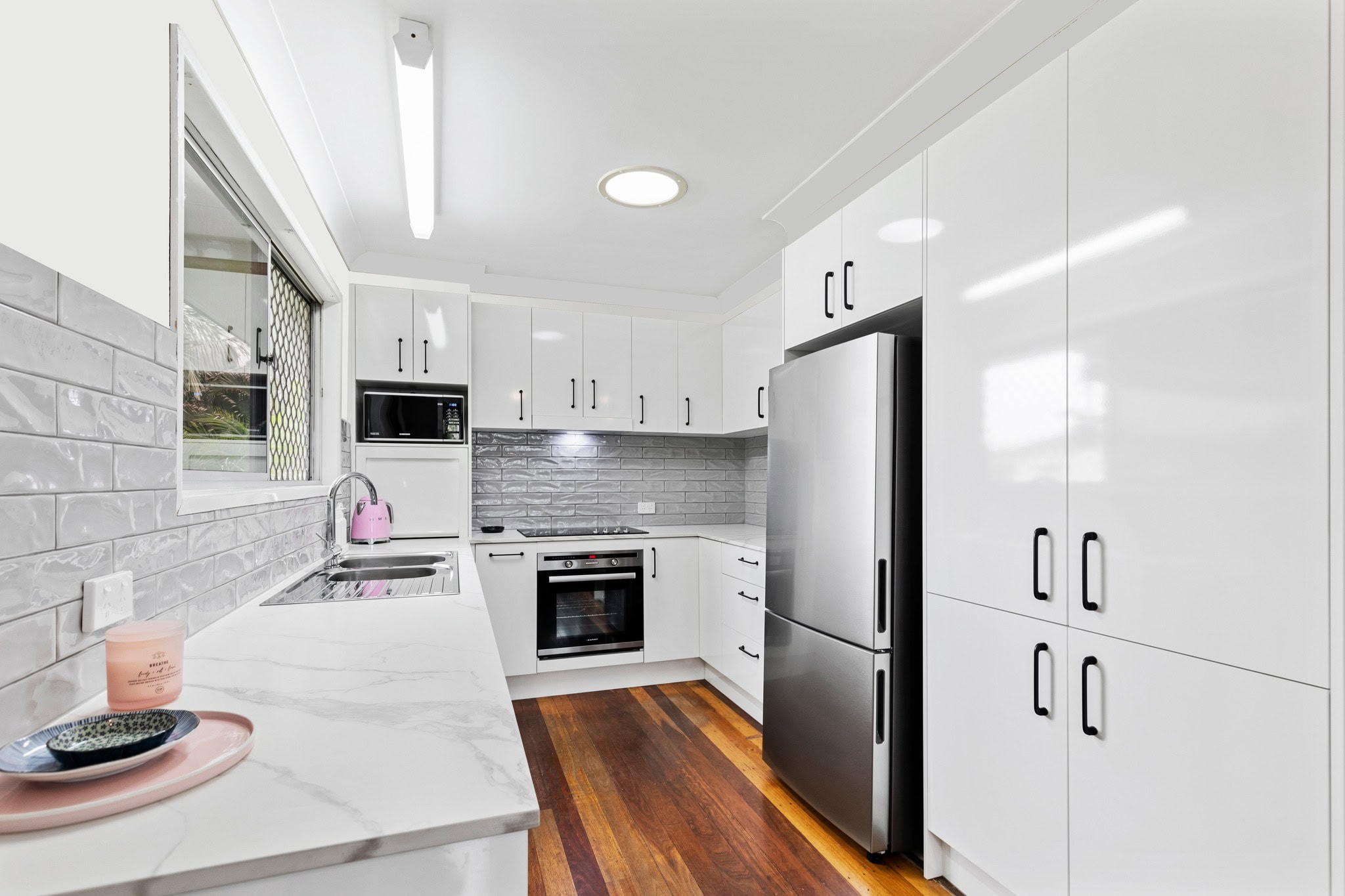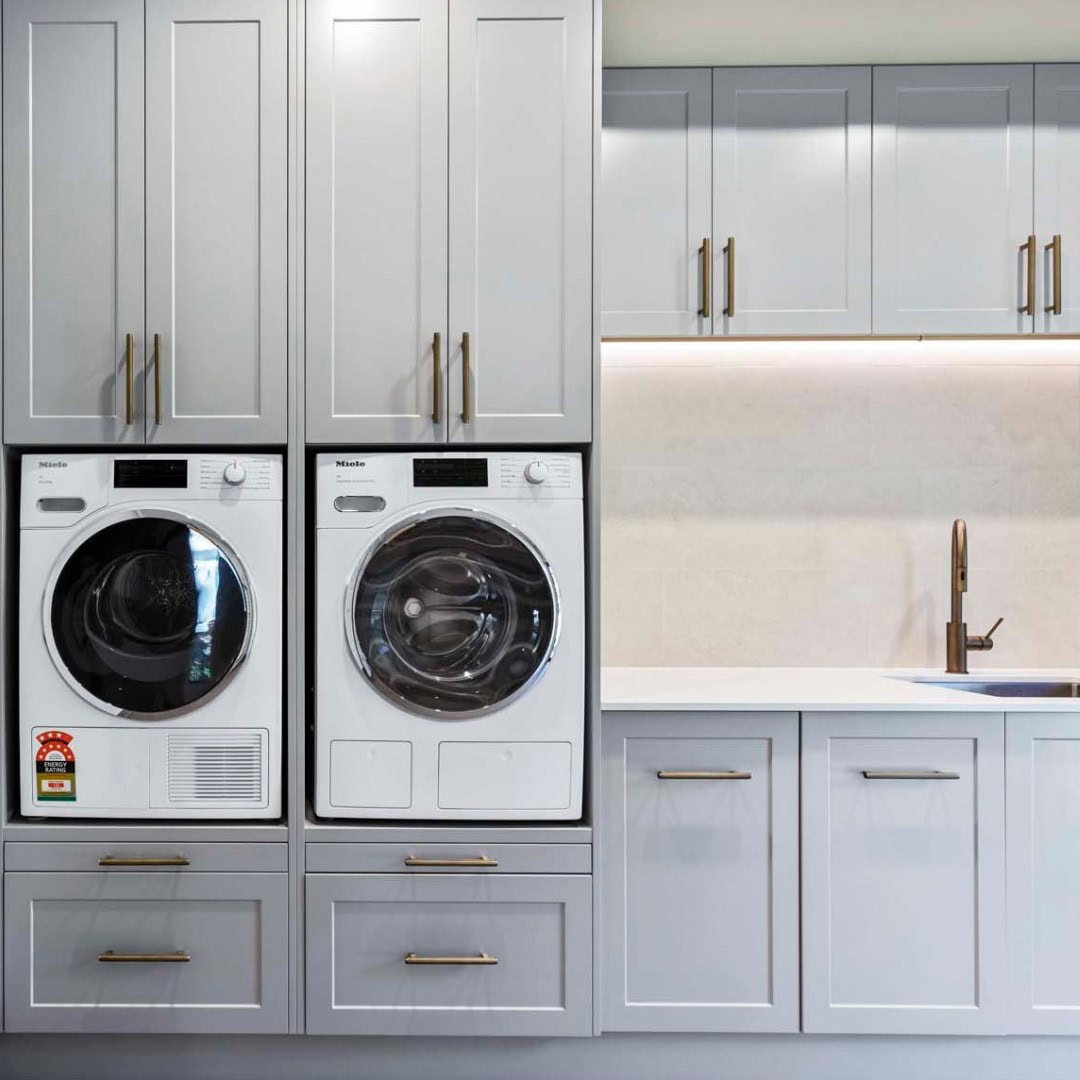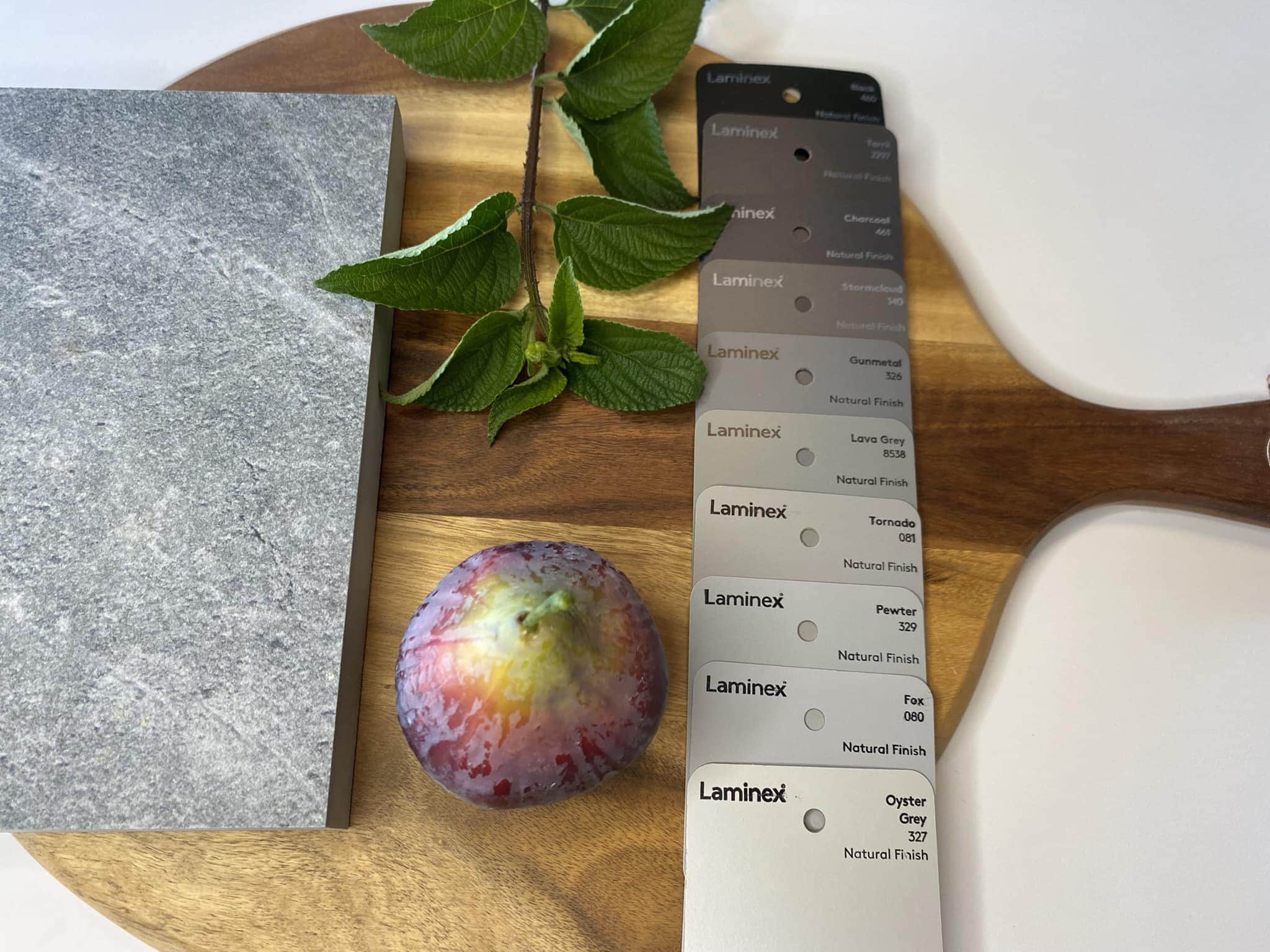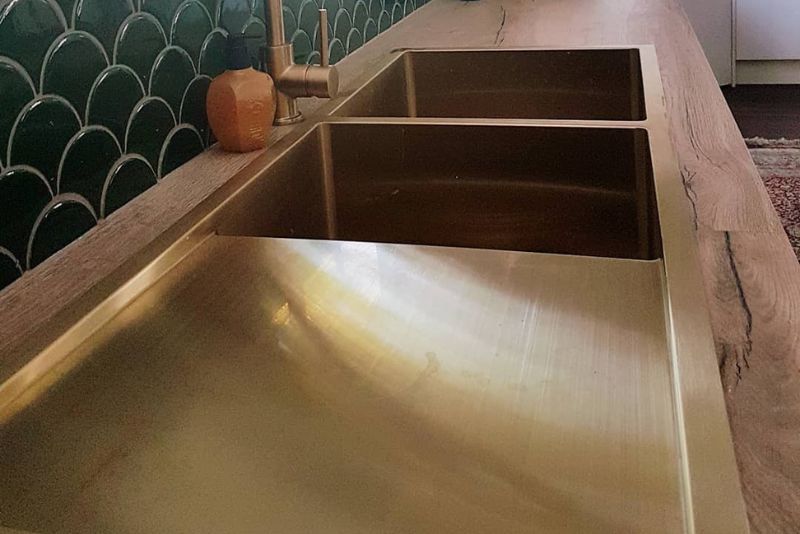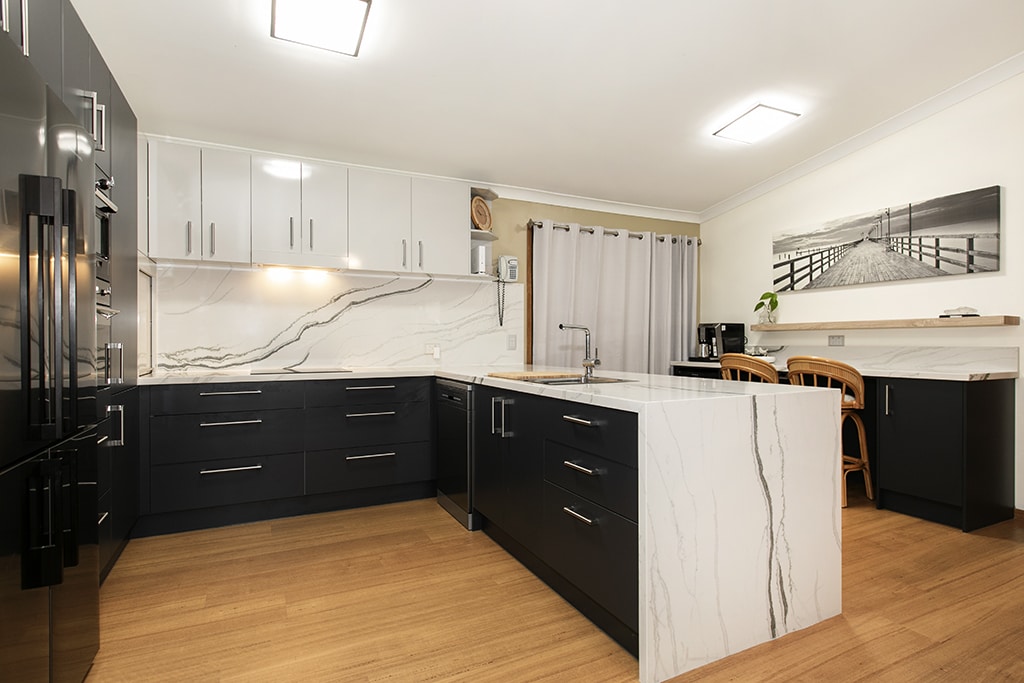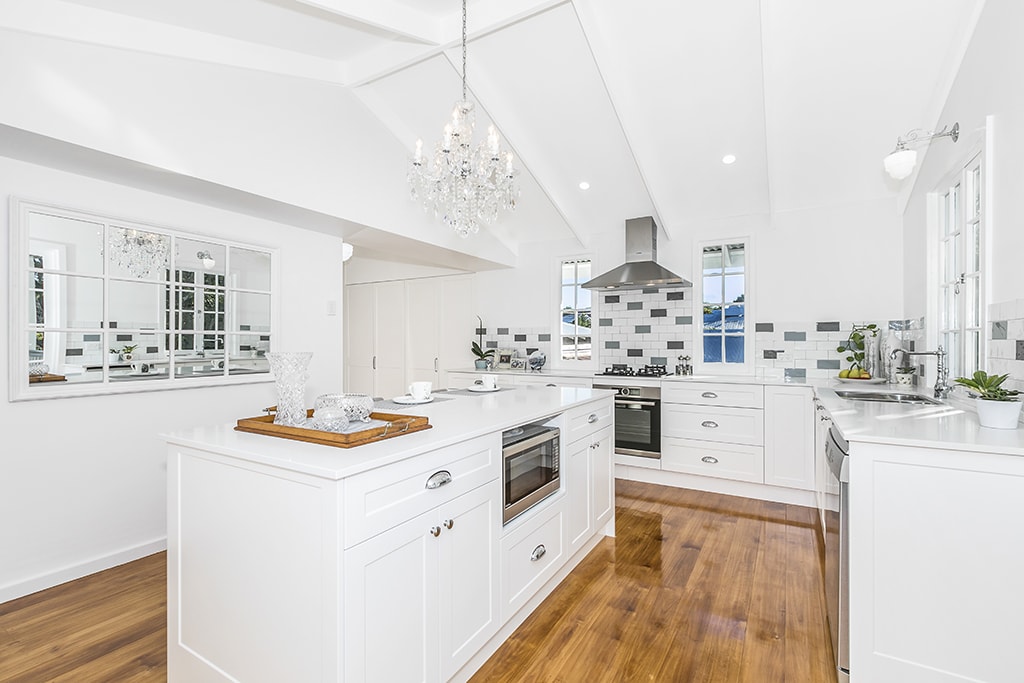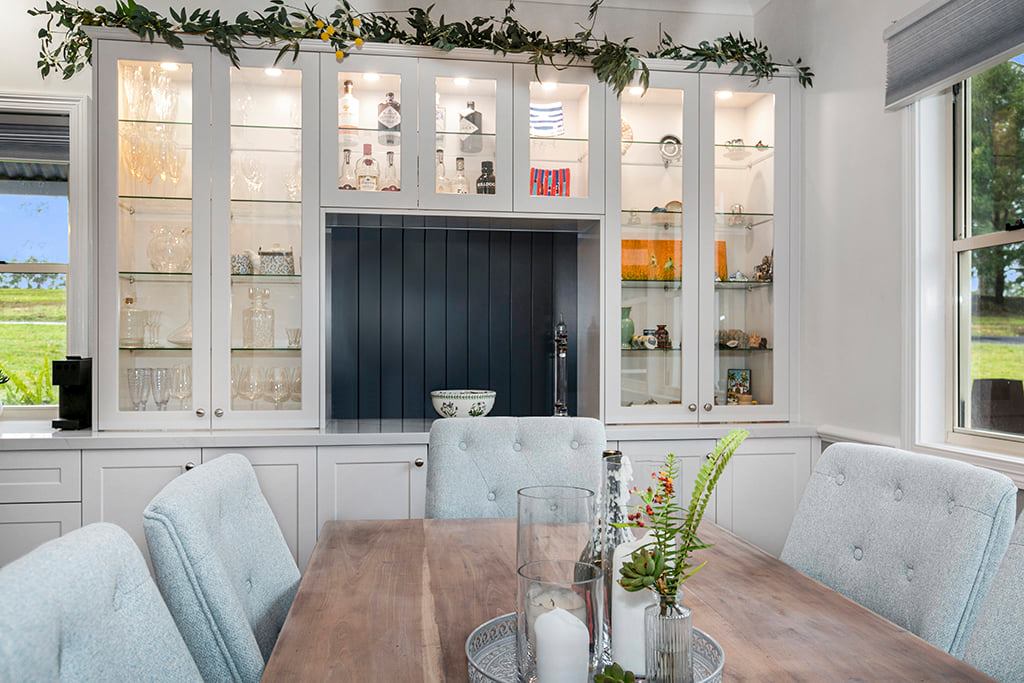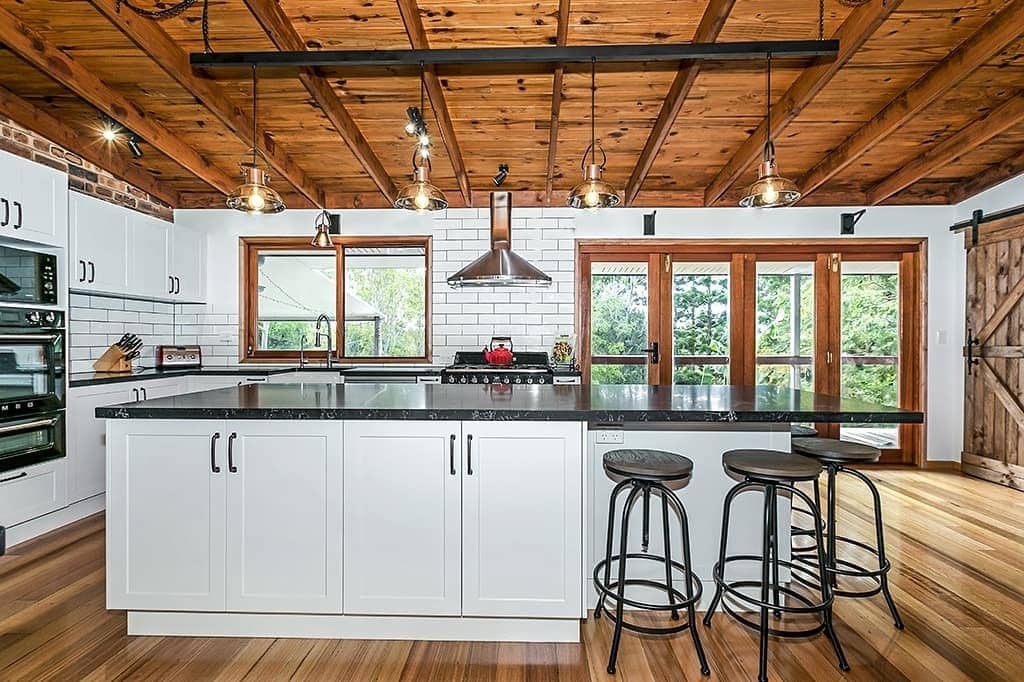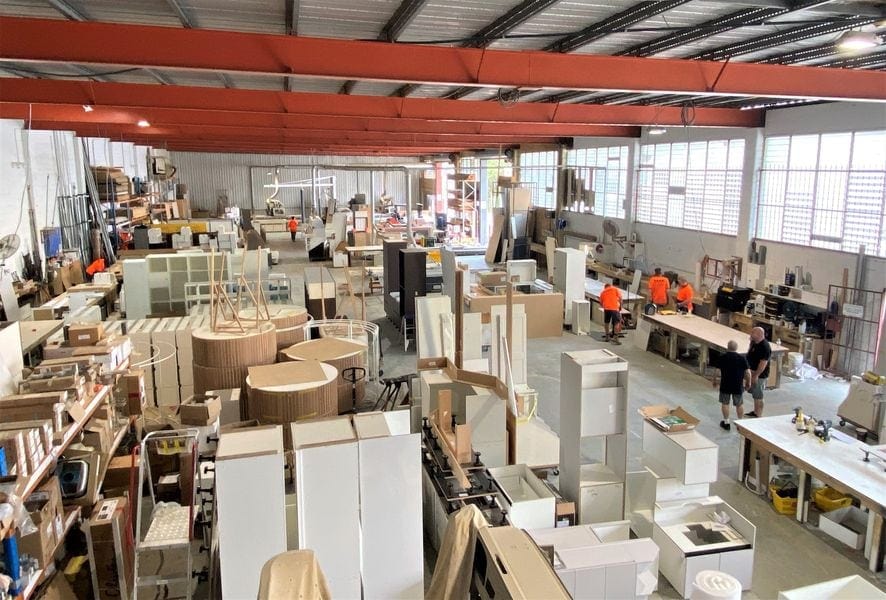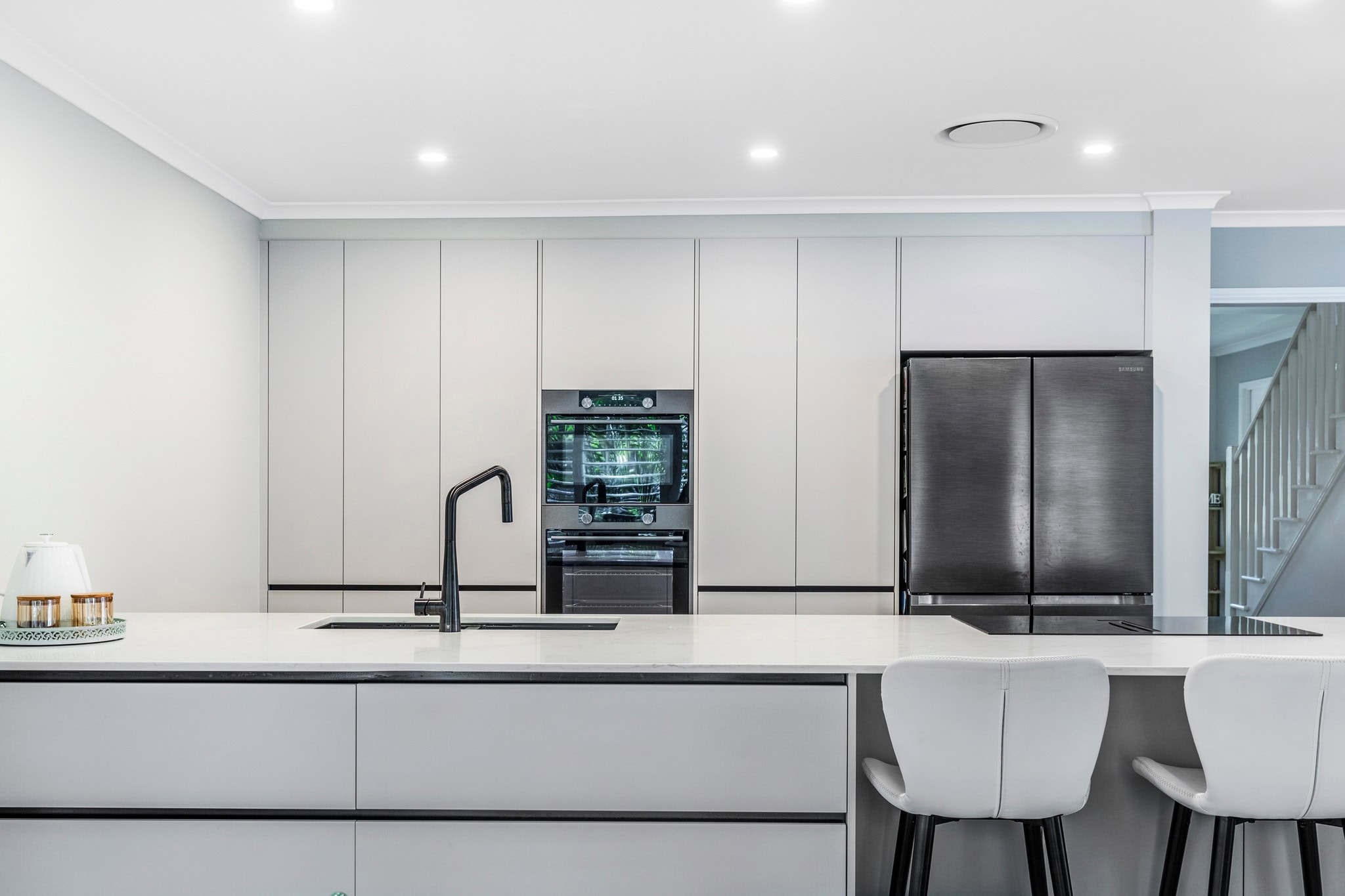Kitchen Splashbacks: What Are Your Options?
Whether renovating or constructing a kitchen from scratch, you should think long and hard about the splashback.
Not only does this humble barrier protect your walls from heat and grease, but it's also a central design element that influences your entire kitchen aesthetic.
A wide range of materials caters to varying budgets and tastes, from tiles to glass and engineered stone. In this post, we're covering the top three options and providing actionable advice on choosing a suitable splashback for you.
What Is a Splashback?
If you're bravely wading into the world of kitchen design for the first time, you might need to know what a splashback actually is.
The splashback is a vertical, wipe-clean screen shielding the walls behind your sink and stove. It creates a protective, easy-to-clean barrier against water, wayward food, heat, and grease. Without one, a multitude of kitchen mishaps, like spills and splashes, could stain your delicate walls.
Therefore, to function efficiently, the splashback needs to be constructed of a heat-resistant, non-permeable material such as glass, tile, or engineered stone.
While the splashback has an important practical purpose, it also serves as a central design element.
For example, eye-catching splashbacks made of glass or tiles can create a vibrant focal point and add a pop of colour. Conversely, the designer can use an understated material like engineered stone to seamlessly transition the bench top and walls. This trick works best in a modern minimalist kitchen.
The Three Most Common Splashback Options
You'll encounter a dizzying array of splashback styles, from raw brick to timber veneer and stainless steel to laminate.
The most popular mainstays are tile, glass, and engineered stone. All three materials have a durable, easy-to-maintain surface and can enhance kitchen aesthetics in creative ways. Also, each has distinct pros and cons, which we'll outline below.
Tile Splashbacks
A timeless classic, tiles have long been the go-to option for kitchen designers seeking a functional yet aesthetic splashback.
One of the key advantages is variety. Tiles come in a plethora of different shapes and sizes, from subway tiles to squares and creative geometric shapes. You also get plenty of choice with colour and texture. Tiles can be cut from porcelain, ceramic, natural stone, mosaic, and glass. All these customisations give tiles the versatility to complement virtually any kitchen design.
Due to their smooth, non-porous surfaces, tiles are relatively easy to clean. However, the grout lines between the tiles require regular scrubbing (and infrequent re-grouting) to maintain in tip-top condition.
Affordability is another plus. Tiles cost as little as $15 per square metre, making them an enticing option for low-budget renovations. That said, the tiling process is rather time-consuming, so you can expect to pay extra for labour costs.
While MKN doesn't supply kitchen splashback tiles, we have extensive experience working with the material. Feel free to BYO tiles as part of your custom kitchen design.
Glass Splashbacks
Glass is an enticing—albeit expensive—kitchen splashback solution.
When incorporated into a window, a fully-transparent glass splashback lets natural light flood inside, brightening up an otherwise dreary room. You also get a lovely view over your leafy garden, which brings a taste of Mother Nature to your stovetop.
Most glass splashbacks, however, don't peer out to the exterior; rather, they highlight an existing feature or offer a unique aesthetic. Enticing options span metallic glass, acid etch glass (which looks brilliant with a matt finish), and mirror glass with a regular, smoky, or black finish. Another alluring option is an image coat, where you can apply a picture of your choice to the surface.
Expect to pay $300-$400 per square metre for a glass kitchen splashback, perhaps even more for a highly customised design. However, as the standard kitchen splashback covers a small area and makes a massive aesthetic difference, many renovators are happy to splash out (pardon the pun).
While glass is prone to fingerprints and smudges, it's much easier to clean than tiles. The lack of grout lines means a simple wipe-down is all you need.

Engineered Stone Splashbacks
Engineered stone is a synthetic composite made of around 90% crushed quartz, plus an assortment of other materials like metals, mirrors, and shells. The composition is then bound together using a strong polymer resin.
Unlike natural stone, engineered stone is durable, non-porous, and has a consistent colour and pattern throughout. All these properties make it a top option for kitchen bench tops and splashbacks.
While other splashback types draw the eye's attention, engineered stone is more low-key. It's an attractive option if you seek a seamless transition between your bench top and splashback.
On the downside, this premium material type is more expensive to purchase and requires a relatively costly installation job. It's also more vulnerable to heat, so you must ensure your splashback is no closer than 200mm to your stovetop.
How to Choose a Splashback That's Right for You?
Now you're familiar with the top three splashback options, let's examine which will work best for you. Finding the ideal splashback requires evaluating your budget, kitchen aesthetic, and maintenance needs.
Stick to Your Budget
Renovating a kitchen is an expensive endeavour, so it's logical to look for affordable materials like tile. However, before buying the cheapest option, consider the impact a snazzy, premium splashback could have on your kitchen aesthetic. Then, measure the size and assess the value of a pricier material.
The standard Australian kitchen splashback is only 600mm tall. Given this small stature, it may be worth investing more in a premium material like glass or engineered stone.
Does it Suit Your Design Aesthetic?
The most expensive splashback in the world will look awful if it doesn't complement your kitchen design.
Glass splashbacks, for example, look dapper on contemporary or industrial designs with smooth, clean lines but will ruin a rustic Hampton or farmhouse kitchen. Due to their versatility, tile splashbacks can enhance various kitchen types, from modern to traditional. Engineered stone splashbacks work best as a low-key way to transition between the bench top and walls.
Consider the Maintenance
Consider your cooking habits and how much time you want to spend cleaning. If you're slaving away at the stove each day, it's wise to opt for a durable, easy-to-clean material like glass or engineered stone, especially if you've got a penchant for messy curries and stews.
While tiles look fantastic and offer excellent value for money, they're trickier to clean due to the grout lines.
What's The Most Cost-Effective Splashback Solution?
Tile is undoubtedly the most affordable material when constructing a kitchen splashback. Even though the installation process is somewhat laborious, low material costs help you stay within budget.
Nonetheless, as the splashback is a small yet crucial aesthetic component, it's also worth considering premium solutions. Many renovators use cost-effective tiles for their laundry and a pricier material for the kitchen splashback.
Build Your Dream Kitchen with Modern Kitchens Northside
Based in Brisbane, MKN has provided customised kitchen design solutions to South East Queensland homeowners for over 20 years.
Our experienced, professional team can help you select and install the perfect splashback material to complement your kitchen style. Come see us at our Lawnton showroom to see how MKN can transform your dream kitchen design into reality.

